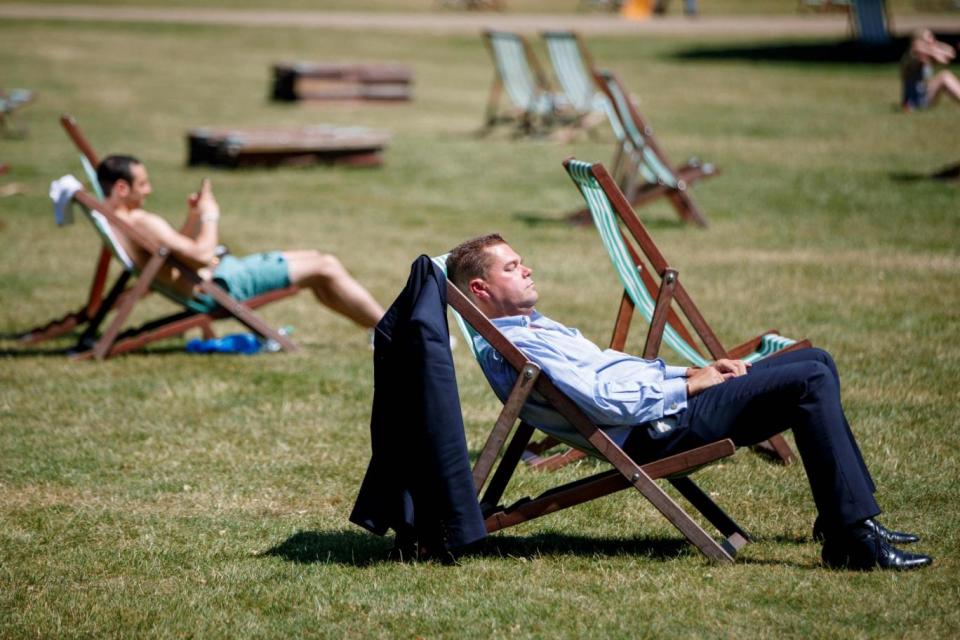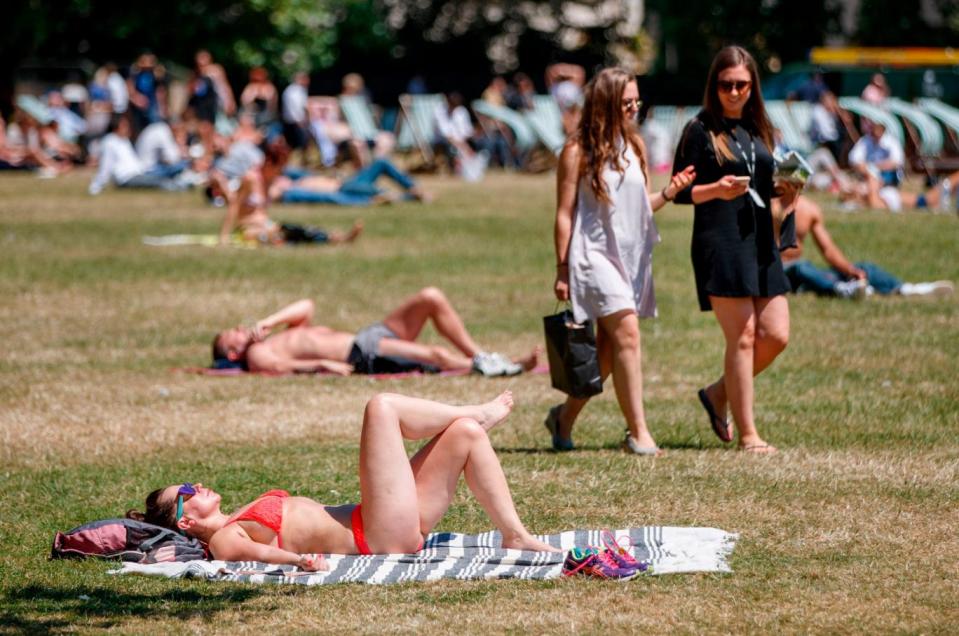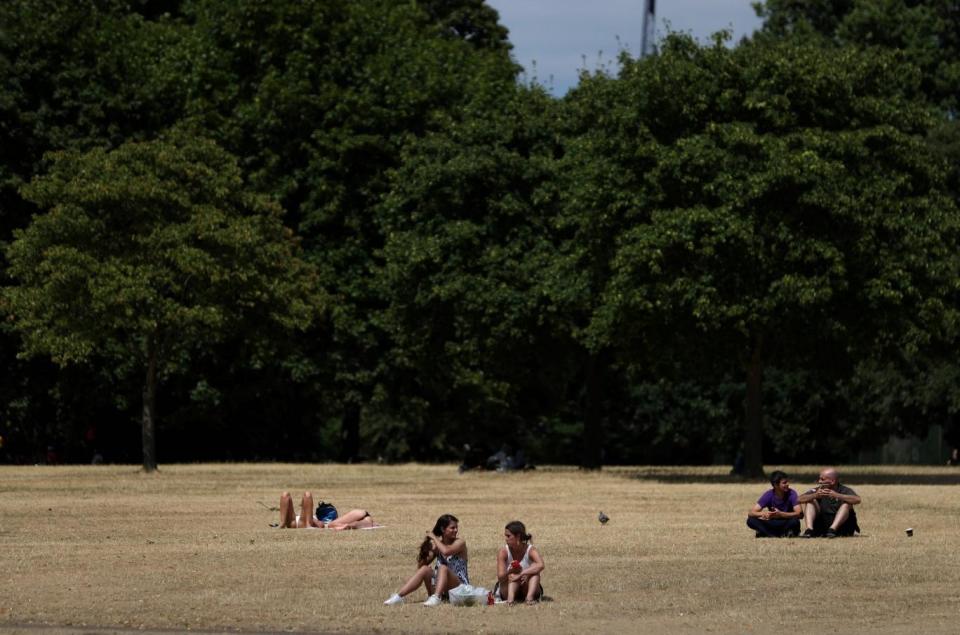UK weather forecast: Heatwave continues and Met Office Amber warning remains in place amid scorching temperatures
The UK is facing another day of scorching temperatures as a heatwave continues to hit the country.
It comes after the hottest day of the year so far on Monday, reaching highs of 33.3C with temperatures overnight surpassing 24C in some areas.
A level three heath health watch alert remains in place for much of the east and south-east of England.
There is a 90 per cent chance of heatwave conditions until 9am on Friday, according to a joint warning from the Met Office, NHS and Public Health England.
Temperatures could go as high as 35C by the end of the week, according to forecasters.
The warning urged the public to avoid the sun and stay indoors between 11am and 3pm when the heat is strongest.
Struggling to sleep? At 11pm it's still 24.3 °C at Santon Downham in Suffolk #HeatwaveUK pic.twitter.com/jvtqZgyw6W
— Met Office (@metoffice) July 23, 2018
Tourism chiefs blasted the "nannying" warning, branding the advice "nonsense" as they urged families to go outside and enjoy the weather.
Malcolm Bell, Visit Cornwall boss, told the Daily Mail: "It’s nanny state with the biggest capital N you could possibly print."
And Steve Jordan, of the Eastbourne Hospitality Association in East Sussex, said: "We’ve had long hot summers in the past and I don’t remember warnings telling us not to go out in the sunshine."

The level three Amber warning is issued when temperatures are predicted to hit 30C during the day and 15C at night for at least two consecutive days.
The heat health watch warning is designed to make local services aware that these conditions are being met, and for them to take action.

This is the longest spell since 1969, when 70 days passed with no significant rainfall.
The Met Office classifies less than 1.0mm of rain in a day as a "dry day".
The sites and their total rainfall over the 54 days are: Heathrow (0.4 mm), Hampton Water works (0.6 mm), Kenley Airfield (1.0 mm), Cambridge NIAB (1.0 mm), Cavendish (1.6 mm), and High Wycombe (1.8 mm).
Here are some of today's highest temperatures on what's been the #HottestDayOfTheYearSoFar #HeatwaveUK pic.twitter.com/JmxUmdLBbC
— Met Office (@metoffice) July 23, 2018
The longest run of days with no rain at all this summer so far is 48 days at Brooms Barn, near Bury St Edmunds, since June 5.
The Met Office said most of their observing sites in East Anglia have had no rain at all since June 21.
The dry spell has been most prolonged in East Anglia and south east England, with the last day of very widespread rainfall for East Anglia and the south east being May 29.
Parts of the Midlands have also been very dry.

A spokesman said: "It's the driest first half of the summer since 1961."
He added: "For the UK as a whole, we've only seen about 20 per cent of the rainfall we'd normally expect throughout the whole summer.
"Parts of southern England have seen only 6 per cent."

Nearly all parts of the UK are seeing above average temperatures, but the hottest temperatures will be towards the east or south east.
During the current heatwave, UK temperatures have been approximately 10C higher than average for this time of year.
Instead of 23C, which could usually be expected in London in July, temperatures could tip 34C.
Dr Thomas Waite, consultant in health protection at Public Health England, said: "Temperatures are likely be high in parts of England this week, which may leave older people, young children and those with long-term conditions, including heart and lung diseases, struggling to adapt to the heat.
"So keep an eye on friends and family who may be at risk.
"To beat the heat, try to keep out the sun from 11am to 3pm, walk in the shade if you can, apply sunscreen and wear a hat if you have to go out in the heat. Also try to carry water with you when travelling."

 Yahoo News
Yahoo News 
